Related Research Articles
Optica, founded as the Optical Society of America, is a professional society of individuals and companies with an interest in optics and photonics. It publishes journals, organizes conferences and exhibitions, and carries out charitable activities.
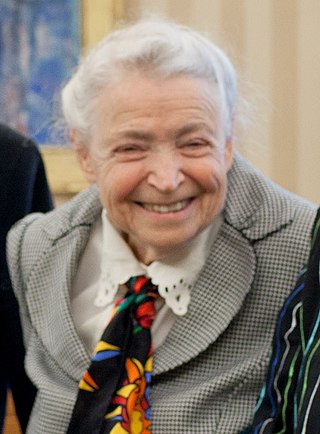
Mildred Dresselhaus, known as the "Queen of Carbon Science", was an American physicist, materials scientist, and nanotechnologist. She was an institute professor and professor of both physics and electrical engineering at the Massachusetts Institute of Technology. She also served as the president of the American Physical Society, the chair of the American Association for the Advancement of Science, as well as the director of science in the US Department of Energy under the Bill Clinton Government. Dresselhaus won numerous awards including the Presidential Medal of Freedom, the National Medal of Science, the Enrico Fermi Award, the Kavli Prize and the Vannevar Bush Award.
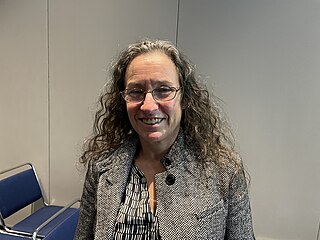
Frances Hellman is a physicist who was dean of the division of mathematical and physical sciences at the University of California, Berkeley from 2015 until 2021. Her primary academic focus has been the study of the thermodynamic properties of novel solid materials, especially thin film semiconducting, superconducting, and magnetic materials. She has served as chair of the physics department and holds a dual appointment in the materials science and engineering department.
Calvin Forrest Quate was one of the inventors of the atomic force microscope. He was a professor emeritus of Applied Physics and Electrical Engineering at Stanford University.
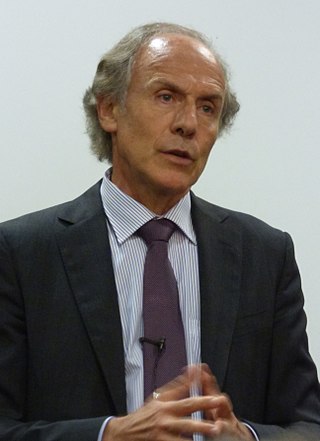
Alan Simon Finkel is an Australian neuroscientist, inventor, researcher, entrepreneur, educator, policy advisor, and philanthropist. He was Australia’s Chief Scientist from 2016 to 2020. Prior to his appointment, his career included Chancellor of Monash University, President of the Australian Academy of Technology and Engineering (ATSE), and CEO and founder of Axon Instruments, and CTO for the electric car start-up Better Place Australia.
James E. Faller was an American physicist and inventor who specialized in the field of gravity. He conceived the Lunar Laser Ranging Program, the goal of which, was to fire high powered laser beams at special retroreflectors placed on the Moon by Apollo program Astronauts. He invented a gravity motion sensor, called the Absolute Gravimeter, which is sensitive enough to detect changes in the local gravitational field due to a person's mass. His work was featured in many books and magazines, such as National Geographic. In 2001, his gravity detection device was featured on the Science Channel in the show Head Rush and was used to debunk anti-gravity devices that were for sale on the market. All devices tested on the show did not produce any kinds of gravitational anomalies. In that same year, he received the Joseph F. Keithley Award for Advances in Measurement Science. His research interests included geophysics, experimental relativity, fundamental constants, and precision measurement experiments designed to look for possible invalidations of accepted physical laws at extreme magnitudes. He worked for the National Institute of Standards and Technology (NIST) and was working on a new measurement of G, the Newtonian constant of gravitation. Faller died on June 14, 2023, at the age of 89.
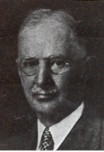
Morris E. Leeds was an American electrical engineer known for his many inventions in the field of electrical measuring devices and controls.
Edwin Fitch Northrup was a professor of physics known for his contributions to the study of substances at high temperatures and electronic conductivity. He was a professor at Princeton University from 1910 to 1919, an officer and adviser of Ajax Electro-Thermic Corp for twenty years and was affiliated with Leeds & Northrup for seven years. He held 104 patents on high-temperature measurement for new methods and instruments for the production and measurement of high temperatures.
Ian Alexander Walmsley is Provost of Imperial College London where he is also Chair of Experimental Physics. He was previously pro-vice-chancellor for research and Hooke Professor of Experimental Physics at the University of Oxford, and a professorial fellow at St Hugh's College, Oxford. He is also director of the NQIT hub within the UK National Quantum Technology Programme, which is led by the University of Oxford. He is also a Fellow of the Institute of Physics, the American Physical Society and the Optical Society of America.
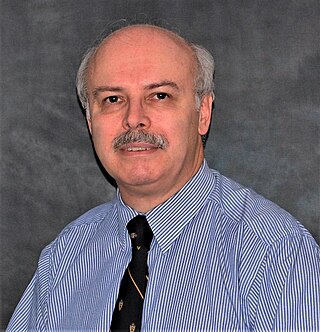
Andreas Mandelis FRSC, FCAE, FAPS, FSPIE, FAAAS, FASME, is a Greek - Canadian physicist who is a professor and researcher in the department of Mechanical and Industrial Engineering at the University of Toronto. He is the director of the Center for Advanced Diffusion-Wave and Photoacoustic Technologies (CADIPT). and of the Institute for Advanced Non-Destructive and Non-Invasive Diagnostic Technologies (IANDIT) at the University of Toronto. He is an internationally recognized expert in thermophotonics. and is considered a pioneer in the fields of diffusion-wave, photothermal, and photoacoustic sciences and related technologies. His research interests encompass studies of physical energy conversion processes in condensed and biological matter as they impact instrumentation science and signal generation technologies with applications spanning the development of a wide spectrum of novel instrumentation, measurement and imaging techniques using optical-to-thermal, thermoelastic, electronic, ultrasonic and/or photonic energy conversion high-dynamic-range and high-sensitivity analytical methodologies, leading to advanced non-destructive / non-invasive diagnostic, inspection and monitoring technologies with major focus on advanced dynamic imaging instrumentation for industrial and biomedical applications. He is the inventor of a photothermal imaging radar which can detect tooth decay at an early stage, can detect the onset of cancerous lesions in soft tissues, cracks in teeth and monitor dental structural integrity over time. His research team also pioneered and patented 22 analytical instrumentation and measurement methodologies and metrologies.

David Wayne Allan is an American atomic clock physicist and author of the Allan variance, also known as the two-sample variance, a measure of frequency stability in clocks, oscillators and other applications. He worked for the National Bureau of Standards in Colorado.
Edwin Ross Williams is a physicist at the National Institute of Standards and Technology. He received a B.A. from Nebraska Wesleyan University in 1964, an M.S. in physics from University of Colorado Boulder in 1966, and a Ph.D. from Wesleyan University in 1970.
The Joseph F. Keithley Award For Advances in Measurement Science is an award of the American Physical Society (APS) that was first awarded in 1998. It is named in honor of Joseph F. Keithley, the founder of Keithley Instruments. The award is presented annually for outstanding contributions in measurement techniques and equipment, and is sponsored by Keithley Instruments and the Topical Group on Instrument and Measurement Science (GIMS).

Andreas J. Heinrich is a physicist working with scanning tunneling microscopy, quantum technology, nanoscience, spin excitation spectroscopy, and precise atom manipulation. He worked for IBM Research in Almaden for 18 years, during which time he developed nanosecond scanning tunneling microscopy which provided an improvement in time resolution of 100,000 times, and combined x-ray absorption spectroscopy with spin excitation spectroscopy. In 2015 his team combined STM with electron spin resonance, which enables single-atom measurements on spins with nano-electronvolt precision REF1, REF2. In 2022 his team demonstrated the extension of ESR-STM to individual molecules REF3. Heinrich was also principal investigator of the stop-motion animated short film A Boy and His Atom filmed by moving thousands of individual atoms. He is a fellow of the American Physical Society and the American Association for the Advancement of Science and the recipient of the Heinrich Rohrer Medal of the Japan Society of Vacuum and Surface Science.
Bryan Peter Kibble was a British physicist and a pioneering metrologist. He was the inventor of the Kibble balance, an improved version of the current balance, developed for the realisation of the S.I. unit of mass, the kilogram.

Hemantha Kumar Wickramasinghe is Nicolaos G. and Sue Curtis Alexopoulos Presidential Chair in Electrical Engineering and Computer Science at the University of California, Irvine.
Mahta Moghaddam is an Iranian-American electrical and computer engineer and William M. Hogue Professor of Electrical Engineering in the Ming Hsieh Department of Electrical and Computer Engineering at the University of Southern California Viterbi School of Engineering. Moghaddam is also the president of the IEEE Antennas and Propagation Society and is known for developing sensor systems and algorithms for high-resolution characterization of the environment to quantify the effects of climate change. She also has developed innovative tools using microwave technology to visualize biological structures and target them in real-time with high-power focused microwave ablation.

Jürgen W. Czarske is a German electrical engineer and a measurement system technician. He is the director of the TU Dresden Biomedical Computational Laser Systems competence center and a co-opted professor of physics.
References
- 1 2 IEEE Joseph F. Keithley Award in Instrumentation and Measurement page at IEEE, IEEE web site. Accessed January 7, 2015.
- 1 2 IEEE Joseph F. Keithley Award, IEEE Instrumentation and Measurement Society web site. Accessed December 9, 2019.
- ↑ Joseph F. Keithley Award For Advances in Measurement Science, American Physical Society web site. Accessed December 9, 2019.
- ↑ APS Joseph F. Keithley Award: Presentation of check to endow the APS Joseph F. Keithley Award for Advances in Measurement Science, American Physical Society web site. Accessed January 7, 2015.
- ↑ List of recipients of the IEEE Joseph F. Keithley Award in Instrumentation and Measurement, IEEE web site.